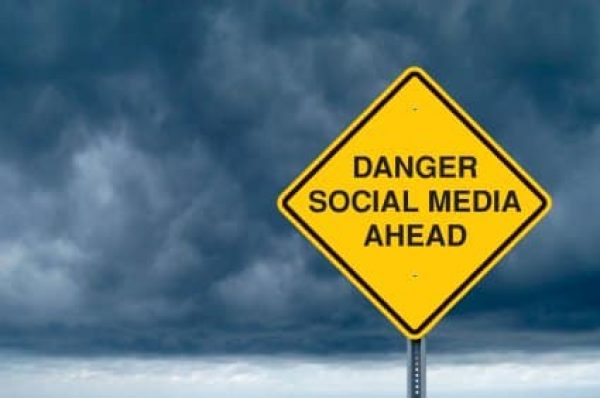It’s none of my boss’s business what I do on my free time, right? As they say, what happens outside of work stays outside of work. We have a right to privacy, and this is America, after all! Right?
The answer is… sometimes yes, and sometimes no.
All you have to do is pick up a newspaper to know that there are times that a company has a vested interest in their employees’ off-duty conduct. Examples include off-duty police officers who were drunk and abusive at a Seahawks’ Game, school teachers moonlighting as exotic dancers, and off-duty firefighters beating up a homeless man. Clearly, there are times that a business cares about what their employees are doing outside of the workplace. And with social media, smartphones, and the internet being what they are, employees’ inappropriate private conduct can become public with lightning speed.
There are several reasons that a business cares about employees’ private behavior:
- The company may have a code of ethics, setting standards of behavior for their workers that coincide with the business’s principles and values.
- They may have a crime-free workplace policy, permitting them to discipline or terminate employees who break the law. And finally,
- Business success relies on a good reputation, and companies have a vested interest when an employee’s conduct has the potential of damaging the company’s reputation.
There are several categories of conduct that are commonly monitored by employers. One example is the use of illegal drugs, including both recreational and medical marijuana. As it stands today, employers may still maintain a drug-free workplace policy based on federal law. Pre-employment drug testing, random testing, and post-incident testing may reveal an employee’s use of drugs off-premises. An employer with a drug-free workplace policy may discipline or terminate an employee who violates this policy.
Businesses are often in a quandary when an employee is arrested. Should the employee be terminated immediately? Bear in mind that we’re all still innocent until proven guilty. But if your employee is in jail for months awaiting trial, what should you do? Every situation is unique, but you should take into consideration the nature of the crime, potential harm to the business, the length of time until charges are resolved or conviction attained, and relationship of the crime to the business. Commonly, businesses place the
employee on paid or unpaid leave until the situation plays out. Even when an employee is found innocent, the very public and sensational nature of the accusation may be enough justification to terminate the employee. The controversial acquittals of George Zimmerman and Casey Anthony are good examples of legally innocent people whose own reputations will make it hard for them to gain employment.
As healthcare costs rise, more companies are implementing behavioral policies which impact employee health. The most common one is a policy to not employ tobacco users. While some states prohibit this, in Washington, cigarette smokers are not a protected class and may be discriminated against.
Some companies may prohibit employees from moonlighting without prior permission from the business. Such a policy can protect against situations such as the moonlighting teacher working as an exotic dancer. Companies just need to bear in mind that part-time jobs are on the rise, and in today’s economy, more workers need a second income in order to survive.
Many states have laws regulating or prohibiting employers’ rights to regulate employees’ private behavior. They range from making it illegal to consider employees’ lawful activity, protecting smokers’ rights, protecting employees’ rights to engage in political activities, and protecting employees’ rights to carry a concealed weapon. Surprisingly, Washington State law is silent on all of these issues. However, that doesn’t give employers carte blanche to regulate their employees. Other organizations, such as the National Labor Relations Board, will weigh in.
The NLRB’s interest in this subject pertains to employees’ rights to protected activity. For example, companies may attempt to prevent employees from using social media to publicly disparaging the business or their supervisors. If this public discussion involves other co-workers, for example, then the NLRB sees it as the same as employees discussing their working conditions or terms of employment over the water cooler, which is a protected activity. Employees are also protected against retaliation. They have a protected right to report such things as discrimination or sexual harassment, make a worker’s compensation claim, whistleblow about their employer’s activities, and request accommodation for a disability.
While it may be tempting to use social media to see what your employees are up to outside of work, remember that old saying, “Be careful what you wish for.” Once you have the information, what will you do with it? If you do decide to take some action, weigh your options carefully. You must have a strong business case to move forward, and at the same time ensure that you are not violating any laws.
Today’s headlines contain many stories which highlight the dilemma companies are facing over employees’ private behavior. Donald Sterling lost his basketball team because of comments he made in private. NFL teams struggle on how to handle players’ arrests for DUI, assault, and even murder. Subway quickly distanced themselves from Jared Fogle and there are many organizations doing the same with Bill Cosby. Your business may not have such a high public profile, but all it takes is one misstep or scandal to put you on the newspaper’s front page.
Carefully craft your policies in your employee handbook, have your attorney review them, and ensure that your employees know what conduct is acceptable to you, both at work and when they are off-duty. And if you do find yourself on the front page, walk thoughtfully and carefully through the process so the news is focused on the employees’ actions, and not on yours!


